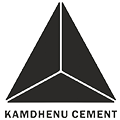Did you know that the choice between Ready-Mix concrete (RMC) and traditional concrete plays an important role in determining the success and longevity of a structure? Each option is different from the others and has its advantages and disadvantages. The right knowledge about each concrete can lead builders and contractors one step closer to a stronger structure. In this comprehensive exploration, we delve into the distinctive features of RMC concrete and traditional concrete, shedding light on the pros and cons associated with each. Here’s come Kamdhenu Cement Supplies to Rescue, a leading brand in India, emphasizes the importance of making an informed choice between RMC concrete and traditional concrete. This decision not only impacts the construction process but also influences the overall quality and durability of the built environment.
Understanding RMC Concrete:
Ready-Mix Concrete, also known as RMC, It’s a pre-mixed and precise formulation of concrete ingredients. A well-established brand, Kamdhenu Cement Supplies, quality ensures that rmc concrete is composed of the best quality cement and thoroughly tested raw materials. The controlled mixing process takes place to guarantee consistency and uniformity in every batch.
Pros of RMC Concrete:
- Time Efficiency: RMC concrete focuses on construction timelines as it arrives at the site when it’s already made and ready for use. This eliminates the task of on-site mixing, reducing labor requirements and construction delays.
- Assured Quality: Kamdhenu Cement commits to using the best quality cement in RMC concrete to ensure superior strength, durability, and resistance to environmental factors.
- Cost Savings: The initial cost of RMC concrete might be higher than traditional concrete, but the overall cost is often lower due to reduced labor and equipment expenses.
- Waste Reduction: With precise measurements at the batching plant, RMC minimizes waste compared to on-site mixing, contributing to a more sustainable construction process.
- Consistency: RMC concrete offers uniform consistency in arrangement and properties that give a more predictable and reliable construction outcome.
Understanding Traditional Concrete:
Traditional concrete involves on-site cement mixing, combining, and adding water according to specific ratios. Kamdhenu Cement Supplies acknowledges the traditional method’s historical meaning and highlights the challenges associated with this approach.
Pros of Traditional Concrete:
- Flexibility: Traditional concrete is suitable for small-scale projects and allows on-site adjustments to the mix ratio to meet unique requirements.
- Local Sourcing: The availability of raw materials on-site can be advantageous in remote areas where transportation of rmc concrete may pose logistical challenges.
- Cost Initialization: For small projects or where only a limited amount of concrete is required, on-site mixing might be more cost-effective.
Cons of Traditional Concrete:
- Inconsistency: On-site mixing may lead to various cons, resulting in inconsistent quality mixture and performance.
- Time-Consuming: Mixing on-site concrete can be time-consuming, especially for large-scale projects. This will lead to potential delays in construction schedules.
- Quality Control Challenges: Ensuring the best quality cement and precise ingredient proportions can be challenging with on-site mixing, leading to quality control issues.
- Labor Intensive: Traditional concrete requires more manual labor for mixing, placing, and finishing, which can contribute to increased project costs and time.
Conclusion:
In rmc concrete vs. traditional concrete, the optimal choice depends on the specific requirements of a construction project. Kamdhenu Cement focuses on best-quality cement and strict quality control and recognizes the strengths and weaknesses of both approaches. As the construction industry continues to grow, the commitment to quality, efficiency, and sustainability remains paramount. Whether opting for the efficiency of RMC or the flexibility of traditional concrete, builders and contractors must make an informed decision that aligns with their project goals.


